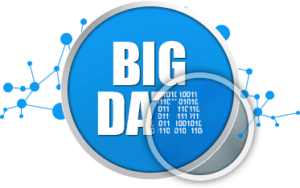5 Important Trends In How Big Data Is Transforming Business

High Marijuana Taxes Undermine Tax Revenue Potential
April 6, 2016
Female Marijuana Consumers Represents a Key Market Opportunity
April 10, 2016
We have all heard that big data is transforming the way we live and how we conduct business.
But how?
And what is Big Data really mean?
Put simply, Big Data is a popular term used to describe complex sets of information that require more advanced applications for processing and analyzing. In order to better store, categorize, access, and visualize large volumes of information, tools are created that help people to extract trends or meaningful pieces of data. And this is incredibly necessary.
When you think about the volume of information available, it is important to realize that it keeps growing at a phenomenal rate. One estimate is that the amount of data available is doubling in size every two years. By 2020, there will be as many pieces of data as there are stars in the universe or 44 zettabytes, which is 44 trillion gigabytes.
Therefore, one way to think about Big Data is that the systems designed to harness all of the information we produce allow us to tell a story about our lives and interactions that goes beyond what we can see in the raw numbers.
New Frontier’s Equio, for example, is one such Big Data resource that allows people to manage information including data from census records, medical reports and research, government statistics, legislative policies, demographics, real estate data and more, as it connects to the cannabis industry. The power of this aggregated data, coupled with risk management tools, gives people the visual resources required to make well informed business and investment decisions.
What are the important trends in how Big Data is transforming business?
1) Data-driven methodologies will become the norm in marketing and sales. Businesses will more precisely target prospects that are higher value and have a better likelihood of converting into sales. They also will be able to adjust tactics faster, and change marketing and sales strategies that are proving to be ineffective – reducing waste in time and maximizing revenue.
2) Powerful tools that enable people to leverage Big Data will become more available at a lower cost to small and mid-sized businesses. This will allow more businesses to afford Big Data resources and improve their competitiveness in the marketplace.
3) Customer support and retention will improve, because businesses will have a better understanding of consumer habits, needs and interests. This data will allow a business to adopt more personalized strategies for connecting with people and measuring satisfaction. If problems arise, such as a delay to a shipment or a customer complaint is made, data systems will allow a business to be both more proactive as well as responsive.
4) Pricing strategies can be implemented with more than a gut feeling on what consumers may be willing to pay. Using big data tools, businesses can better identify heavy buying periods and shopper trends, monitor potential impacts to their supply chain, and have insight in competitor pricing.
5) Prediction of future opportunities or challenges becomes easier using Big Data. If you know that legislative changes are coming (new taxes, buyer restrictions, or opening of specific markets), you can plan and take action to ensure the stability of your business. Likewise, market trends, new product announcements and shifts in buying patterns all can signal new potential opportunities.
It is time to use Big Data to grow your business
The use of Big Data in business is still expanding. However, the amount of data available to businesses also is expanding. It has become too much for any one company to acquire, manage and use on their own. With more systems coming into the marketplace, many tailored for specific industries, acquiring a big data resource has become both an affordable and essential step for every business owner. Overall, the ability to leverage information to better meet the needs of existing customers, as well as reach new consumers, has the potential to improve – not just the sustainability of any business – but ensure growth and greater success.




